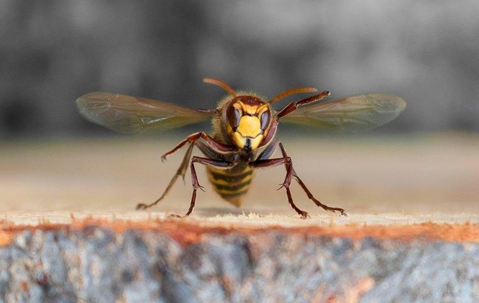You learn something new every day, right? Perhaps today’s revelation will be that there is no single animal called a “wasp.” This term actually refers to hornets, yellow jackets, and many other varieties of stinging insects we encounter in our daily lives. No matter what kind of flying menace you’re talking about, you don’t want them nesting in your yard or around your Frisco home.
Wasps: Good For The Planet But Bad For Your Yard
Most people know, by now, how pollinators such as honey bees are good for the environment because they aid the spread and growth of vegetation. But did you know that non-pollinating wasps are also just as crucial for ecosystems? Hornets and yellow jackets may not collect and distribute much pollen, but they do hunt the kinds of insects that harm plant life. Greenflies, caterpillars, and aphids are all common staples for wasps, and fewer of these pests around means plants and crops aren’t stripped bare.
But just because they can be good for the environment doesn’t mean they are good for you and your loved ones. Once they nest, wasps become extremely territorial and can pose all manner of problems:
- Stings: The most obvious one is the painful stings they dole out. While different varieties of stinging insects are more aggressive than others, the general rule of thumb is to not invade their space if you don’t want to get poked.
- Allergic reactions: The barbs that wasps use to sting people contain venom and some people have extreme and deadly reactions to these compounds. While bees are a common pest for allergic reactions, hornets and yellow jackets can cause these kinds of reactions, too.
- Territorial: While many wasps are solitary creatures, hunting on their own rather than as part of a colony, they are very territorial, and swarms can pose real problems. If a nest is built in a part of your home or yard, these insects can effectively take over that part of your property.
What Attracts Wasps And What Can You Do?
The best way to not have to worry about pests is by being proactive and doing the work of prevention early on before the problems set in. Preventing wasps from nesting on your property means first removing the factors that attract them:
- Shelter: Wasps of all kinds are looking for safe places to nest where they won’t have a lot of other competition. Overgrown trees and bushes act as magnets for them, so keeping yours trimmed will remove these hotspots.
- Sweet sugary treats: Like most insects, wasps are attracted to sugary aromas. Don’t leave open pop cans around and make sure that you’re discarding beverage and food containers in sealed containers outside rather than in open bins.
- Water: Wasps need to drink just like every other animal, so yards with fountains, birdbaths, or ponds provide easy access to hydration. If possible, keep items that contain water away from the house or remove them altogether.
Dangerous Problems Are Our Wheelhouse
When dealing with pests that can cause dangerous stings and allergies, it’s best to not take a risk at all. Call the professionals at Adams Exterminating at the first signs of a wasp infestation, and our expert technicians will remove the problem safely and quickly. Don’t risk your own well-being when wasps move in, let the pros handle them. Call Adams right away.

